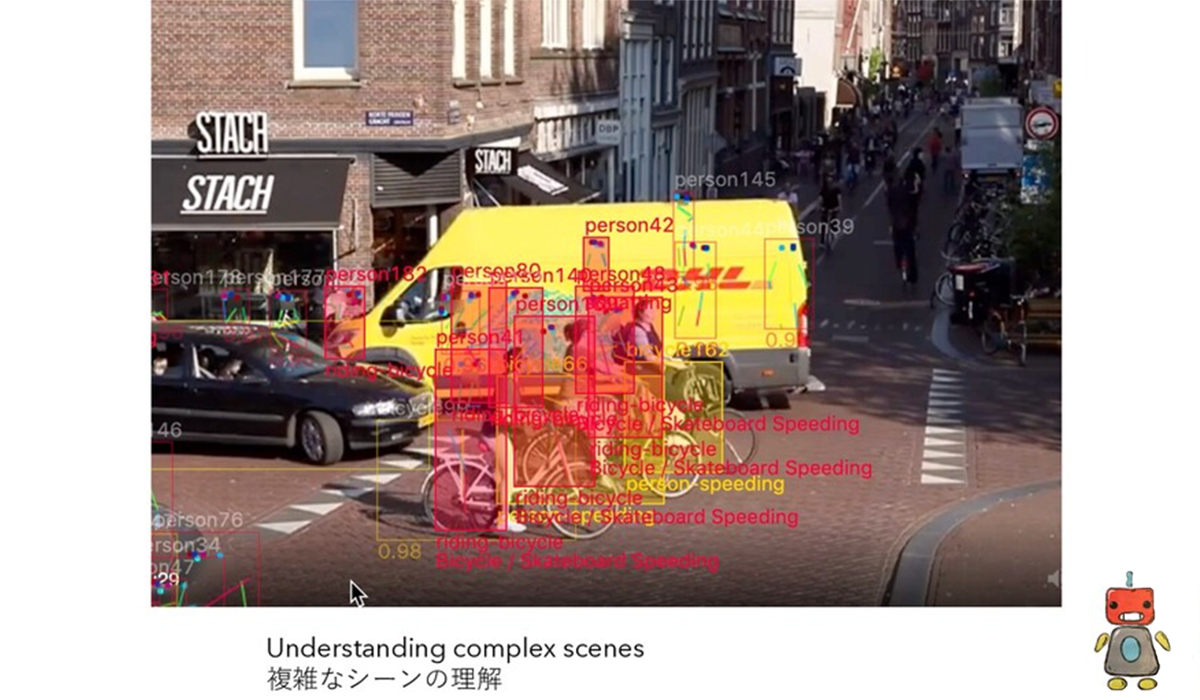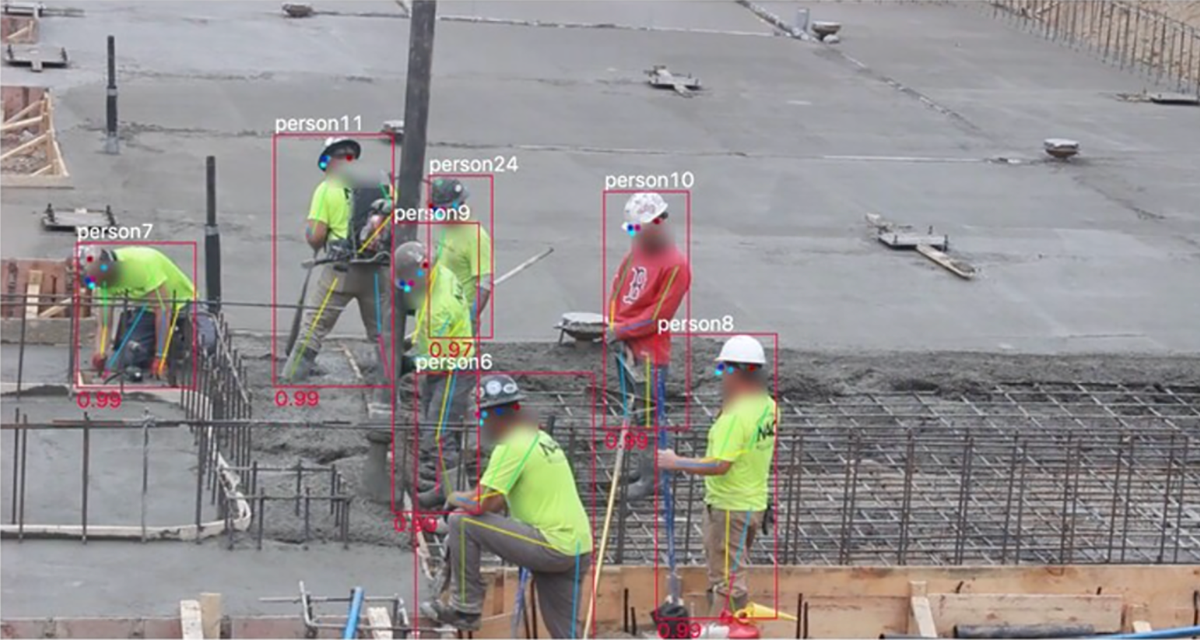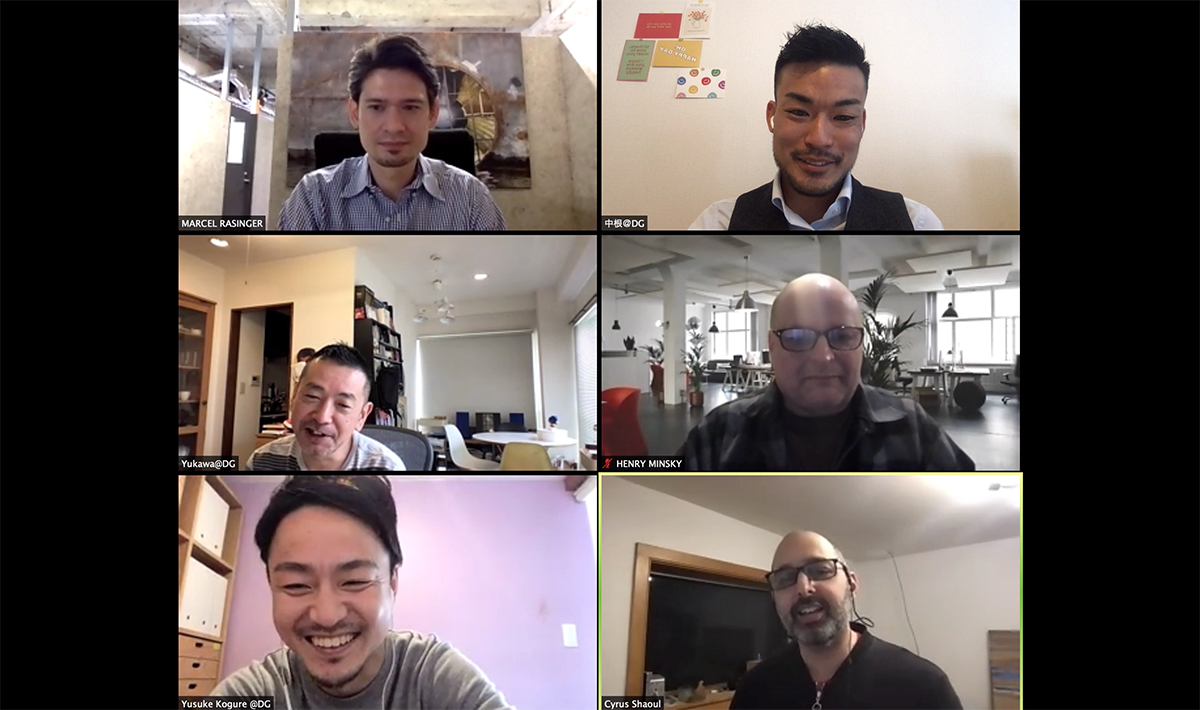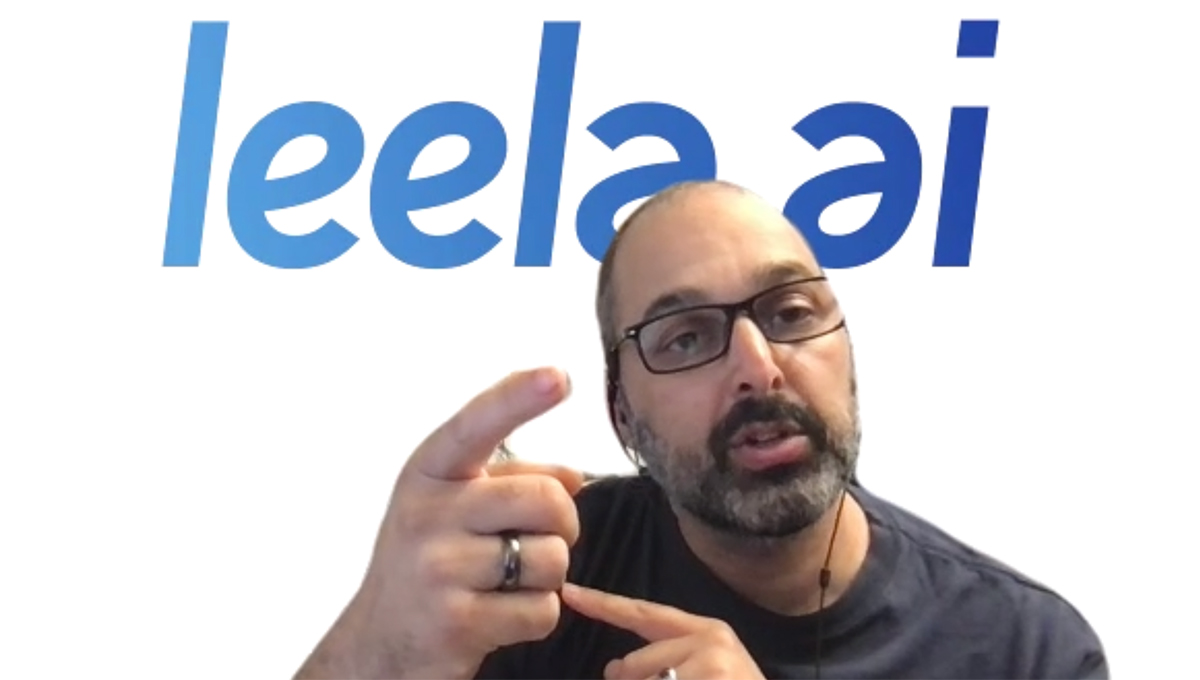2021年08月17日

<Profile>
Dr. Cyrus Shaoul, CEO
Cyrus is an entrepreneur and computational cognitive scientist with extensive experience in computational cognitive modeling. Cyrus was a co-founder and CTO of Digital Garage Inc. until 2001. From his work on computational language processing models while at the U. of Alberta and the U. of Tübingen, Cyrus gained deep experience with neural networks for NLP and related technologies. He is a graduate of MIT (BSc) and the University of Alberta (MSc, PhD).
Open Network Lab Resi-Tech (Onlab Resi-Tech) is a global accelerator program designed for real estate-related startups to create new values essential in the coming era. It leverages the Digital Garage Group’s worldwide network and experience supporting startups in all stages, collaborating with major Japanese companies that lead the real estate, construction, and lifeline industries.
Onlab Resi-Tech 2nd Batch was held from December 2020 till April 2021. Currently, applications for the 3rd Batch are open. The deadline is noon on 2021/08/26 (JST). In this article, we are introducing 2nd Batch participant, Boston-based startup Leela AI.
Leela AI is a startup that offers the “understand.video” artificial intelligence (AI) engine with concept awareness. “understand.video” is a new AI system designed to overcome some of the technical limitations of machine learning systems in the world today. Their PoC was conducted to show how their technology can be used in shopping malls, construction sites, and office buildings. Leela AI worked to improve safety and work efficiency in these PoC projects.
How was the Onlab Resi-Tech experience beneficial for Leela AI? How did Onlab Resi-Tech support the PoC?
Contents
― Please introduce yourself and what solution is provided by your company.
My name is Cyrus Shaoul, and I am the CEO of Leela AI. Due to my father’s job, I came to Japan when I was 15 years old and went to an American school in Tokyo. Then I went to university in the US, at the Massachusetts Institute of Technology. As soon as I finished university, I returned to Japan and started working for the telephone company NTT. I worked for NTT for one year and then did many other things in Japan. And in 2017, I joined Leela AI.
We are a company that is creating a new kind of artificial intelligence solution, particularly for smart cities, construction sites, real estate, and manufacturing. We have many different applications, but the core idea of our technology is to build AI that is more like the way human beings think and can do the same kind of activities as humans, such as learning new things. Our software can learn new things very quickly. For example, we can learn about a new kind of behavior with our software using 100 times less data than many other kinds of AI software.
We can have our software learn things very quickly to understand when something is safe or unsafe. Our system gathers information about safety using video cameras. Our solution uses this video data to understand what’s happening. We can help many different companies solve many kinds of problems that require a system that needs an understanding of what’s happening inside the video data.
― What is the crucial logic to make the system use fewer data than the other AI?
If you look at many existing systems that use cameras and video, they look at each pixel, and they’re trying to tell what is in those pixels, which are millions in one image. Every time you record a video, you record 30 images per second. So that’s a lot of pixels. If you’re trying to understand what’s going on at the level of pixels, it’s complicated and requires processing billions or even trillions of pixels.

In simple language, our system focuses on a higher level of what’s going on in the video. For example, we look at people’s bodies and where objects are. Instead of looking at pixels, we’re trying to understand the relations between people, objects, and their environment. That lets us have our system learn much more like a human being because humans also try to understand things at a very abstract level. We don’t think about what color my finger is. No one cares about that. All we care about is, am I touching a hot pot, or am I touching a cold glass? Touching a cold glass is fine, but touching a hot pot will burn you. That’s a very general thing. We’re trying to have our system learn about the world in a very general way to learn something very quickly and then understand the world much better.
― What are the benefits for the customers to use your software?
One benefit is boosting the abilities of workers. Our customers can have the same person be able to manage more cameras. Maybe one person was watching ten cameras. But our system will find only interesting or dangerous events which can make one person monitor 100 cameras. That’s a big help for the companies that want to hire security guards and security staff. They can do more with the same amount of people that save them money.
― What motivated you to join the Resi-Tech program?
Our strategy at our company was to release our software in Japan and the US simultaneously. Most American companies sell their product in America, and once it’s successful in America, start selling it in other countries around the world. But because I grew up in Japan and spoke Japanese and also all of my co-founders used to live in Japan, we wanted to go for the Japanese market at the same time. We wanted to make this project a chance to build a customer base in Japan and move things forward.
― Is the product in the market already?
We’re doing proof of concept projects with customers, and we hope to release the commercial product later this year. But we have some early customers who are going to be the first ones to use it. And we’re going to test it with them and make sure that it delivers the benefits they are expecting. And so far, it looks very promising.
― Please tell me about the details of the project.
We had three partners in our Resi-Tech PoCs, an office building, a shopping mall, and construction sites. We took videos from their locations in Japan, we took them back into our cloud processing system, and we applied our software to understand their problems. They wanted to make their video cameras much smarter and understand the complicated behavior that the camera was observing. For example, they wanted to make sure that if people in the video were falling or looked like they were sick. Customers wanted our system to identify where those people were. If someone is looking at their smartphone and then they walk, they hit a wall and fall. And so our system could tell if somebody is falling and then notify the customer that somebody just fell.

In shopping malls, if there’s a situation where somebody is sleeping on the floor of the food court or somebody riding a bicycle in the hallway, the security people can react and stop that kind of dangerous behavior very quickly. And so that improves the quality of the customer experience in the mall. That’s the kind of benefits that they are seeing.
In construction sites, we looked at very different situations. Are those people working efficiently? Are they doing their job safely? Are they working at an above-average speed? That was one of the great discoveries of working with our partners. The customers wanted to know about workers’ safety, but they also wanted to know about efficiency. Our software was able to measure both things and provide compelling data to the customer.

― How was working with the partners?
What made this project very special was that we were able to show when the customer had an idea to add a new behavior to detect, the time between when they had the idea, and the time between when we could give them something that worked was very short. We were able to provide it to them in one or two days. That is extremely fast for an AI system that performs high quality machine vision. And so that’s where our special abilities became apparent to our customers in Japan. Every time there’s a new thing, a new behavior, a new event. They want to develop a custom event understanding system. They can do it quickly with our system, and that lets them solve more problems. That was a very remarkable discovery through this process of doing the program.
Second, it was important for us to understand more about what Japanese customers want. Japanese customers need particular solutions that are specific to Japan. I needed to talk to them and understand better what they wanted and what they needed. Now we know that much better. We currently work with at least eight different Japanese customers, including Onlab Resi-Tech consortium members.
― You’ve mentioned the differences between the US and Japanese customers. What specific needs did you find?
One thing that we are learning more and more is that safety is very, very important in Japan. Sometimes it is more important than the profit. I noticed that the customer’s always wanted to have more safety. They wanted to protect people’s lives. They wanted to prevent injuries and prevent crime. All these things are super important for Japanese customers. They’re also important for American customers, but I think they’re more important for the Japanese, and that was very interesting and a bit unexpected. So we have now put more effort into building systems that we can understand safety well.
Then there are some other technical things. Japanese customers have invested more money in video cameras than many customers in the US. That helps us because if you have a high-quality new video camera with high resolution, our system works better.
There’s one more significant thing I want to say. I think Japanese culture has become very well adapted and well adjusted to having video cameras around. In America, many people are not used to having a camera at their job. They might say “I don’t like that camera watching me”. But I think in Japan, most people would say, “You know, cameras are okay; I don’t mind having a camera watching me, especially when the camera will be making my life safer”. So there’s a cultural difference in how people accept cameras in their lives. When we try to present our software to Japanese customers, it makes it easier because everybody is very used to life with cameras.

― Which market are you looking for as your customer?
During the project, we worked with office buildings, shopping malls, and construction sites. Those were the three types of projects we did during this time, and those are still ongoing. Those are excellent businesses for us. After the end of the project, we’ve expanded. Right now we’re exploring use-case with manufacturers too.
― How did Onlab help you in the project? What kind of role did Onlab play?
They were accommodating. I don’t think we could have had the success we did without their help. The Onlab staff was crucial to our success. First of all, they wanted to understand our product and our business. Once they understood, they helped us find the best partners for us. They did a great job as matchmakers. In every meeting, they were always there. They were tracking the progress of our project with the Japanese corporate entities. They made sure that there was always excellent communication. Also provided a translator, and that translator was an excellent translator who could translate between Japanese and English and English and Japanese. They would advise on the best way to create the project, on the best way to measure the value for the customer.
― With COVID-19, you were forced to work remotely from Boston. Did it hinder your project in any way?
Onlab did everything to make sure that we could succeed even though we couldn’t go to Japan in person. They arranged all the meetings, set up collaboration tools, and provided a Slack tool to communicate. They did everything they could to make the projects with our partners succeed, although we couldn’t go to Japan.
The companies in this consortium are enormous giants in Japan, and here we are a tiny American technology startup. So it’s sort of like a small bird on the back of an elephant; it’s a very different size. So it’s vital that the elephant is friendly and likes to work with tiny birds like us. Onlab chose the companies that had more experience with partnering with small startups. We’re small; we can move very fast. We’ve got a small team so we can change direction every day. But if you’re a giant company, you can’t move fast because you need to be more cautious. There is always a risk that such startup-enterprise collaborations don’t work due to those speed differences. The companies that Onlab recommended were great partners willing to work with foreign startups, and we love working with them. We hope we can continue working with them in the future.

― How supportive were the corporate partners?
The whole process would not have succeeded if they hadn’t been so supportive. We are still a young startup, and we haven’t finished all the parts of our system. Our system was still being developed and working okay, but there was still much work to do. The partners were very understanding, accommodating, and supportive. They even did some data preparation for us. So it was a true partnership and collaboration. Through the project, we both learned from each other, and there were benefits to everybody. Thanks to the project, the risk was shared among the members of the consortium. That made everyone more comfortable.
― What are your overall thoughts about this program?
It’s a valuable program, and I was delighted to take part in the 2nd Batch. It benefited my company in many ways. We met our first customers in Japan through this program. We learned, changed, and improved our business because of what we learned from those customers. They told us things that we use to improve our solution. So that was very valuable to us. We also got to share our information on the Onlab website. We had some public relations and marketing that we got through this program that we’re also very valuable to us. During this program, we started talking to our investors in America. And that investor was very impressed with the success of our project; they decided to invest in our company.
― What are the next steps of your company?
Our next milestone is to release version 1 of our software and make it available to customers. As I said earlier, we plan to do that in Japan and the US, simultaneously supporting both Japanese and English languages. Once we can succeed, we hope to move next onto robotics to help robots understand the world better. That’s maybe in two or three years.
In addition, we want to work with more Japanese partners. We want to continue working with Onlab, and we want to open up an office in Japan. I know how important it is to give your customer the local Japanese telephone number. And one thing I learned from my many years working in Japan, there’s the old Japanese saying, “the customer is king”. I believe that. Serving my customers and giving them excellent service is my passion. You have to make a great product, but you also have to offer fantastic service. That, to me, is the road to success in Japan and everywhere.
We are looking to form partnerships with Japanese companies that sell cameras, networks, and all kinds of on-the-ground types of activity. We want to work with them to send one of their staff on a van in a car drive to the customer and help them. That’s, we’re trying right now; to set up those kinds of partnerships, and we have some exciting potential partners in Japan that we’re starting to work with.
― Any advice for the people who will apply for the next Batch?
I genuinely encourage any startup interested in getting to know the Japanese market and finding great corporate partners in the Resi-Tech space. I’ve looked at many programs in Japan and America, but I don’t think I’ve seen any that are as good as this regarding the support and the focus. We received an immense amount of support from Onlab, so I think if they want to do anything with Japanese customers, it’s the best one there is, and they should apply.
And for the people joining, I would say to listen, especially those who want to learn about Japan and don’t know about Japan. They should listen to what the Onlab staff and specialists will tell you. Listen to your customers because even though I lived and worked in Japan for a long time, I learned many things during our time with the Resi-Tech program. Also, ask many questions.
There will be some hard times when challenges arise, unexpected problems happen, and that’s when it’s essential to stay committed to the program and not give up. For example, we had to work hard with lawyers and specialists since we needed to handle data related to personal information and personal privacy to proceed with the project legally in Japan. Many other challenges happened, and we’re behind schedule. But then we worked hard, were able to catch up, and luckily finished everything we promised by the end of the program.
Open Network Lab Resi-Tech 3rd Batch Applications Now Open!
Deadline: Noon at 2021/08/26 (JST)
Program period: 2021/11~2022/5
Open Network Lab Resi-Tech supports co-creation by utilizing our partners’ assets and know-how in startup support and business creation cultivated by the Digital Garage Group for more than 10 years. The opportunity to co-create with several major players in the domestic real estate/construction industries allows startups to gain feedback and traction from multiple perspectives.(Application Form)
